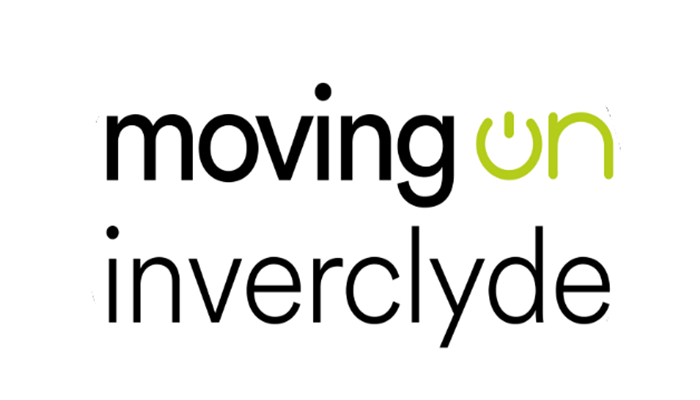"An important element of our work is to help people re-establish connections. Good relationships and communities are protective factors that can support personal growth and help prevent relapse." Bruce Thomson, Service Manager
- What is your organisation working to achieve?
Moving On supports the meaningful recovery of people from drug and alcohol problems. We have a 4-phase programme that supports people who have already achieved an initial degree of stability, i.e. abstinence or controlled use, to allow them to engage fully in our programme. People in recovery from a drug or alcohol problem have often become disengaged, not only from family and friends, but also from involvement in the community in which they live. An important element of our work is to help people re-establish these connections. Good relationships and communities are protective factors that can support personal growth and help prevent relapse. Our service users are also encouraged to use their strengths to develop new interests which can include volunteering, training, and employability opportunities.
We have a focus on changes in lifestyle which are necessary for recovery. New ways of looking at issues, building on existing strengths, and learning alternative ways of coping with challenges, are all elements of our approach.
We also provide support to family members affected by another’s substance use.
- Where are you focusing your support right now?
During COVID restrictions, Moving On focused on the continuation of its services as far as possible. It was critical that we maintained contact with service users to help mitigate the effects of isolation and the risk of relapse. To this end, we were able to secure funding for electronic tablets and IT training for service users, enabling them to participate in audio/visual calls with their keyworkers. We were also able to conduct group sessions online.
In line with Government guidance, our premises have consistently been open for face-to-face contact with service users since May 2021. We are now back to providing our full programme of activities, following a gradual build-up. This includes one-to-one sessions, group work, SMART Recovery meetings, and auricular acupuncture. We are providing a COVID-safe environment, as well as encouraging service users’ uptake of testing & vaccination.
Taking part in physical activity to keep healthy is also important in recovery and we have been fortunate in securing 2-year funding for an activities coordinator post.
- How do poverty and trauma figure in the work that you do?
Moving On is based in the second most deprived area in Scotland, Inverclyde (Scottish Index of Multiple Deprivation 2020). Currently, Inverclyde has statistically among the highest rates of drug and alcohol problems prevalence in both men and women, emergency hospital admissions, depression, mortality, low birth weight, income deprivation, and unemployment in Scotland. A total of 33 people were lost to drug-related deaths in Inverclyde in 2020, continuing a decade-long rise in numbers.
It is well-established that people who experience problem drug and alcohol use commonly have backgrounds of trauma. 84% of new starts to our service in 2020 reported the impact of personal mental health problems or trauma while participating in our initial assessment process.
A recent survey of our service users’ experience of COVID has confirmed a significant rise in the numbers experiencing isolation and worsening mental health, commonly as a result of being unable to meet people face-to-face and loss of direct contact with family members.
We have recently appointed an in-house counsellor to support service users experiencing problems related to trauma and/or mental health. This will help address challenges service users are experiencing in accessing mental health services due to lengthy waiting lists.
We work closely with local financial advice services and the Department for Work and Pensions to help ensure service users are receiving the benefits they are entitled to, as well as advice in managing their finances.

- How can funders support your work?
Project-specific funding is useful but we also need adequate funding for core costs over the longer term, to provide sustainability and aid longer-term planning of the service. The Robertson Trust has been generous in recently awarding us 3-years’ funding as a contribution to our core costs, allowing us some flexibility in how funds are spent.
We recognise that a significant number of challenging issues are currently faced by the country and that our poorest and most vulnerable people will inevitably be worst affected. Services need to be able to respond effectively and there will be no quick solutions. Scottish and UK Governments also need to be alerted to the scale and impact of these challenges and that priority must be given to addressing them, particularly in terms of funding necessary.
- What changes would you like to see in your area of focus over the next 5 years?
We would like to expand our services to work with young people (under 18), as this is an area of need not well-served in terms of drugs and alcohol support provision. We also anticipate that this could be an increasing area of need as we emerge from COVID and its impact on young people.
There is also a need for increased employability opportunities for people in recovery, many of whom may never have had meaningful employment. Inverclyde has traditionally experienced high rates of unemployment.
- What long-term system changes would best address the issue?
The causes of poverty and deprivation need to be addressed at a national level.
Fresh thinking is needed at policy level around legalisation (or decriminalisation) of drugs. There are positive lessons to be learned from other countries which have embraced this.
There also needs to be consideration around the provision of direct funding from the government to the third sector, specifically for addictions, rather than just via local and health authorities, as alcohol and drugs are too often accorded lower priority amid a range of competing priorities for local bodies.
How Moving On Inverclyde's work fits with our 2020-2030 strategy
"We know from our strategy development that there is a clear link between trauma, problem drug and alcohol use, and poverty. Community-based support, such as Moving on Inverclyde, plays a hugely important role in ensuring that people have access to a network of support that will allow them to engage in recovery, build positive relationships, and re-establish connections with their community.
Moving on Inverclyde places the community at the heart of what they do, and we know that this sense of community is a crucial protective function against poverty. It is for this reason that we are delighted to be supporting them again, under our new strategy."
Gillian Morton
Funding Officer

